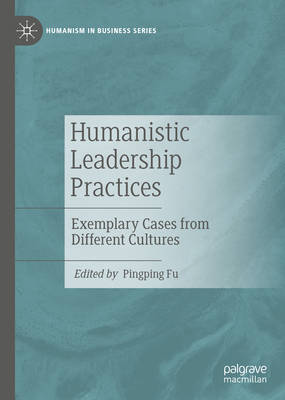
- Retrait gratuit dans votre magasin Club
- 7.000.000 titres dans notre catalogue
- Payer en toute sécurité
- Toujours un magasin près de chez vous
- Retrait gratuit dans votre magasin Club
- 7.000.0000 titres dans notre catalogue
- Payer en toute sécurité
- Toujours un magasin près de chez vous
Humanistic Leadership Practices
Exemplary Cases from Different Cultures
Description
This edited volume offers a comprehensive analysis of humanistic leadership, bringing together authors with experience working in different cultures to demonstrate that humanistic leadership exists everywhere and has enabled companies to sustain all over the world.
There is a high volume of evidence that executive education has significant influence in the decisions of executives and upper managers in business, government and other institutions. However, in spite of the many different leadership theories in existence, there is a severe deficit of research and literature addressing the specific needs of organizations for integrating the human dimension. This book highlights different cultural case studies from around the world to demonstrate that humanistic leadership is the model that best enables employees to thrive and businesses to sustain. Part of the popular Humanism in Business series, this book will be of great interest to academics, students and practitioners of leadership and human resources.
"People are realizing that leadership today requires more than just managing an organization well for the purpose of maximizing profit. In this important book, several authors explore the defining characteristics and behavior of what are becoming known as 'humanistic leaders'. Humanistic Leadership in Different Cultures is a powerful and inspiring accompaniment to bodies of work about servant leadership and quantum leadership, and adds the dimension about how these are practiced in different cultures. I recommend it highly."
- Danah Zohar, Author of The Quantum Leader and Zero Distance
Spécifications
Parties prenantes
- Editeur:
Contenu
- Nombre de pages :
- 328
- Langue:
- Anglais
- Collection :
Caractéristiques
- EAN:
- 9783031343650
- Date de parution :
- 01-03-24
- Format:
- Livre relié
- Format numérique:
- Genaaid
- Dimensions :
- 148 mm x 210 mm
- Poids :
- 566 g

Les avis
Nous publions uniquement les avis qui respectent les conditions requises. Consultez nos conditions pour les avis.





